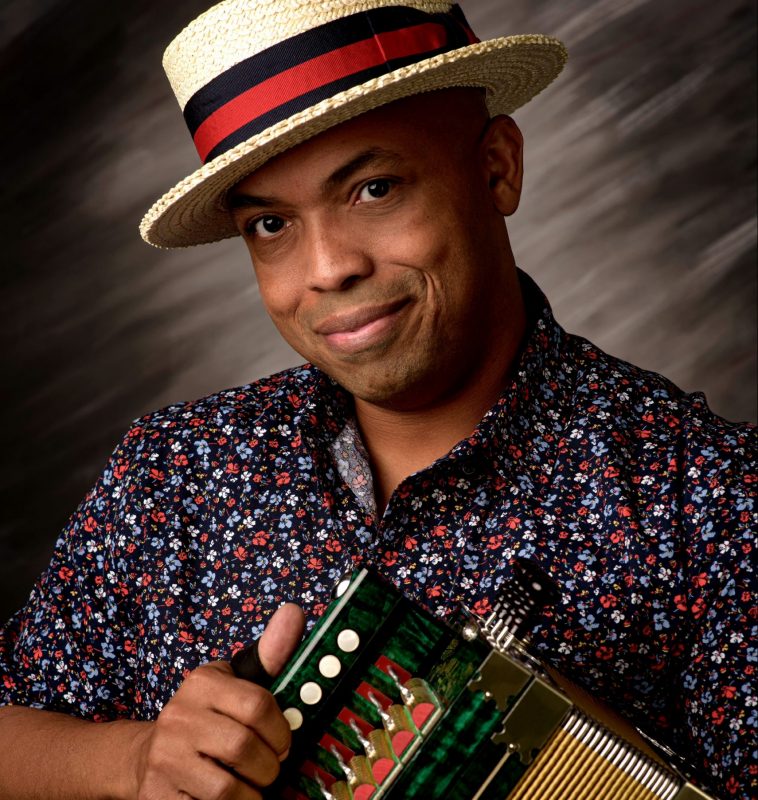
Bonjour to all you crazy Cajun connoisseurs out there; we have news of a couple of new releases that are worthy of your attention. We’ve seen in recent articles in this occasional series, how important it is for the Cajun and Creole communities to preserve and promote their culture and here we have two excellent examples of artists that are going the extra mile to do that.
First up we have the first solo release from Lost Bayou Ramblers frontman, Louis Michot. Formed in 1999 by Louis and his accordion-playing brother, Andre, the Lost Bayou Ramblers hail from Pilette, Louisiana and have caused quite a stir in Cajun circles by combining elements of western swing, rockabilly and even punk with their traditional Cajun music. They’ve long been recognised as one of the more experimental bands around the modern Cajun scene but are still held in high regard because of their championing of traditional Cajun tunes and their determination to continue singing in French rather than give way to wider commercial considerations. It’s a stance that has seen them receive a Grammy and get to provide some of the soundtrack for ‘Beasts of the Southern Wild’, which won top awards at both the Cannes and Sundance Film Festivals.
Now Louis Michot is putting out his first solo album, many of the ideas being developed during the pandemic. Though Michot is, primarily, known for his fiddle playing this album will also see him play guitar, bass, accordion and the Cajun T’fer (triangle) and, in keeping with the sonic experimentation that the Lost Bayou Ramblers have become known for, this solo album ‘Rêve du Troubadour’ (The Troubadour’s Dream), will feature special guests including Nigerien guitar player Bombino and ex Carolina Chocolate Drops cellist, Leyla McCalla. Most significantly, many of the songs have been composed using Cajun French and feature a number of words particular to this dialect, helping to keep the Cajun traditions alive. While laying down his original musical ideas for the album, and they are very original, in keeping with his experimental nature, Michot also kept a pair of stereo mics live outside his houseboat to capture the sounds of birds and insects, adding a unique environmental seasoning to many of the tracks. This album promises to be a very deep dive into modern Cajun culture and a real attempt to capture the authentic sound of the new Cajun Louisiana on record, in Louisiana French all the way.

Following on from that we have Corey Ledet and his latest album, ‘Médikamen’, which is the first he has composed entirely in the Louisiana Creole dialect, Kouri-Vini. Ledet has long been a serious student of Louisiana’s musical heritage and his family’s part in keeping the music of his community alive. Tracing his family’s genealogy, he discovered that their musical roots dated back to the late 1800s and that they performed in a variety of the outfits that played Ragtime, early Jazz, Be-Bop, Zydeco, Creole and Blues. Though Ledet himself was born and raised in Houston, Texas, he would spend summers, as a young boy, with family in the small town of Parks, Louisiana, just to the east of Lafayette. This is where he first heard the Kouri-Vini language and was exposed to Creole culture.
These are both important albums, based as they are on a better understanding of Cajun and Creole culture along with their common roots and the differences that mark them out from each other. Many people think that the Cajuns were the original settlers in that southwest region of Louisiana but, in fact, Cajuns are a subset of Louisiana Creoles and the Creole community had been in existence in Louisiana for some time. It’s estimated that the Louisiana Creole identity had been in existence for a good couple of generations before the Acadians arrived in Louisiana in the mid-18th century. Contrary to the popular belief that Creole is the term for the black population of southeast Louisiana and Cajun for the white population, it has nothing to do with ethnicity and is more to do with religion and language – to be Creole was to be local, catholic and French-speaking, regardless of race.
The process that came to be known as creolisation occurred throughout the Latin Caribbean world, as different populations blended their culture, language and music to create new cultural forms. These populations included French and Spanish settlers but also enslaved West Africans, indigenous tribes, such as Choctaw and Chitimacha, and even Canadian trappers and German immigrants. Fuelled largely by the transatlantic slave trade, and the European colonialism of the time, creolisation is a fascinating blend of cultural ingredients that pulls all these peoples together. A good example of this blending can be found in many of the dishes of the region and, of course, in the music. For example, the popular dish Gumbo, somewhere between a soup and a stew, uses okra and rice, popular West African ingredients, filé, or crushed sassafras leaves, used by Native American tribes, and a roux, an important part of French culinary technique. Musically, the accordion, probably the most important instrument in both Cajun and Zydeco music, originally came to the region via German settlers, before being taken up by enslaved plantation workers.
The separation of Cajun and Creole identity started to happen in the late 19th century, as the American establishment tried to force the use of English in Creole communities. This, followed by the Jim Crow segregations of the early 20th Century, started to see the Acadian Creoles increasingly identify as Cajun, partly to separate themselves from the word Creole, which was increasingly being used to describe black and mixed-race people in southern Louisiana, and partly to affirm their French Canadian origins and their determination to retain their French-based culture. The language known as Kouri-Vini, also known as Louisiana Creole, is not the same as Louisiana French, which is more widely used. There are reckoned to be less than 10,000 Kouri-Vini speakers and it is considered an endangered language, so Corey Ledet’s decision to write and perform an album entirely in this language is a significant step, both in recognising the language of his own family and in keeping this rich culture alive.
Both albums are released by Nouveau Electric Records and you can find out more about the records here.
I’m indebted to the website of the Historic New Orleans Collection for its extensive information on Cajun and Creole history and culture, and I would urge all serious fans of this wonderful music to check the site out here.
And you can hear a sample of Corey Ledet’s ‘Médikamen’ here.



Look out for Americana UK’s chat with Corey Ledet which is coming in October.
Rick, Merci for another great piece on one of America’s liveliest musical traditions.
Many thanks Michael. Glad you enjoyed it.